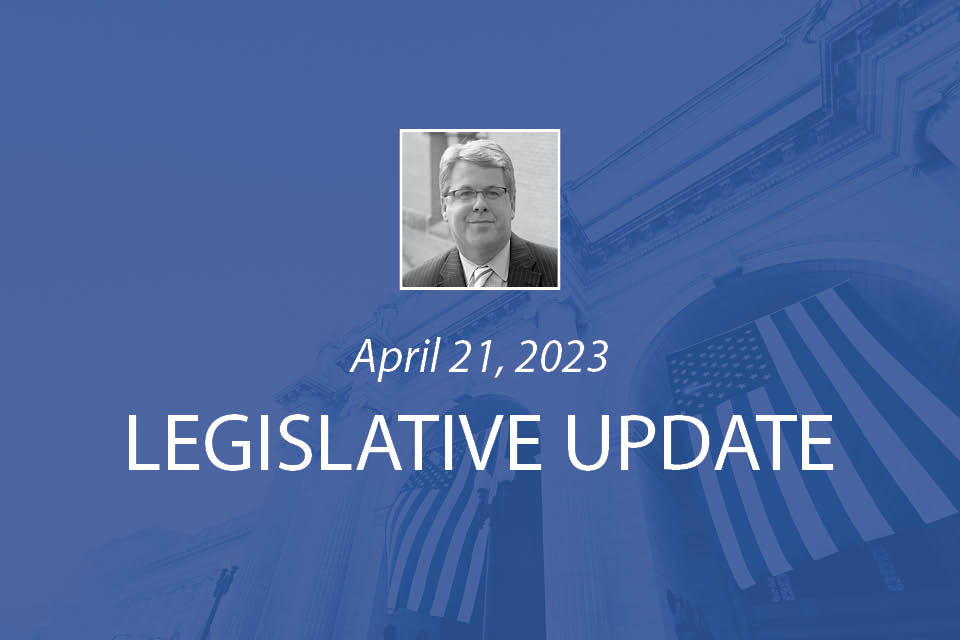Congress
Members of Congress returned to Washington this week after a two week break. The issue that is commanding attention is the debt limit. Due to lackluster tax receipts, the U.S. may bump up against the debt ceiling as early as June. Yesterday, Speaker Kevin McCarthy unveiled a proposal that would increase the debt ceiling by $1.5 trillion, which would presumably move the next decision on this issue out until March 24, 2024 or later. Included in the proposal are spending reductions, including repeal of renewable energy tax credits that were part of the Inflation Reduction Act (IRA) and the $80 billion authorized by the IRA for the Internal Revenue Service to enhance its tax collection and enforcement capabilities.
As we know, Republicans control the House by a slim margin and while this proposal-slated for floor consideration next week—may pass the House, it is dead on arrival in the Democrat-controlled Senate. The debt ceiling is shaping up to be the first real test of the McCarthy Speakership. Democrat leadership in the House and Senate have held firm to their position that the debt ceiling be lifted with a clean extension—without any spending reduction provisions—and that will likely continue to be their negotiating position. We will keep you apprised of developments.
Supply Chain
ABMA participated in a kick-off event on Capitol Hill yesterday of the Congressional Supply Chain Caucus. The bipartisan caucus is being led by Representatives David Rouzer (R-NC), Angie Craig (D-MN), Dusty Johnson (R-SD) and Colin Allred (D-TX). A common theme among both the Members of Congress and the panelists is the need for more truck drivers. The ABMA-supported SHIP IT Act was mentioned often as a policy solution for several trucking challenges that all links of the supply chain are encountering. Rep. Johnson is the prime sponsor of that bill in the House.
Panelists included representatives from the National Association of Manufacturers (NAM), the Shippers Coalition, American Trucking Association (ATA), an electric utility representative and staff from the short line railroads association. The NAM representative emphasized that workforce was an issue prior to the pandemic and now is a top priority of the association. According to its data, 59 percent of manufacturers in the U.S. cannot expand their operations due to a lack of skilled/available workers.
Following up on that theme, the ATA representative noted that the trucking industry needs to hire 1.2 million drivers over the next decade to keep pace with demand and finding those truckers will be a challenge. He went on to note that the average age of a new trucker entering an apprenticeship program is 34, an age that suggests these individuals are on their second or third career path. His point is that the industry must access high schools and educate potential young drivers about the benefits of a career in trucking before they decide on a different profession. One other theme that arose during the discussion is the manner in which all of the current supply chain challenges are interconnected.
The electric utility representative indicated that there is currently a shortage of electrical transformers and that there is a 3-year lead time between ordering a new transformer and date of delivery. Likewise, there is a 5-year lead time for ordering new utility line trucks and bucket trucks. He noted that because of these supply chain issues, the U.S. is one or two major storms away from having a major power outage that simply cannot be restored quickly. Such disruptions would obviously affect not only residential power customers, but the economy as a whole.
The event was an effective platform to raise awareness of the supply chain crisis confronting the country and the need for Congressional action. Again, the SHIP IT Act was held up as an example of legislation that, while not the silver bullet that will solve all of our economy’s supply chain challenges, would help measurably on a number of trucking-related fronts. ABMA continues to advocate for enactment of this bill and others pending in Congress that seek to alleviate our supply chain challenges.




